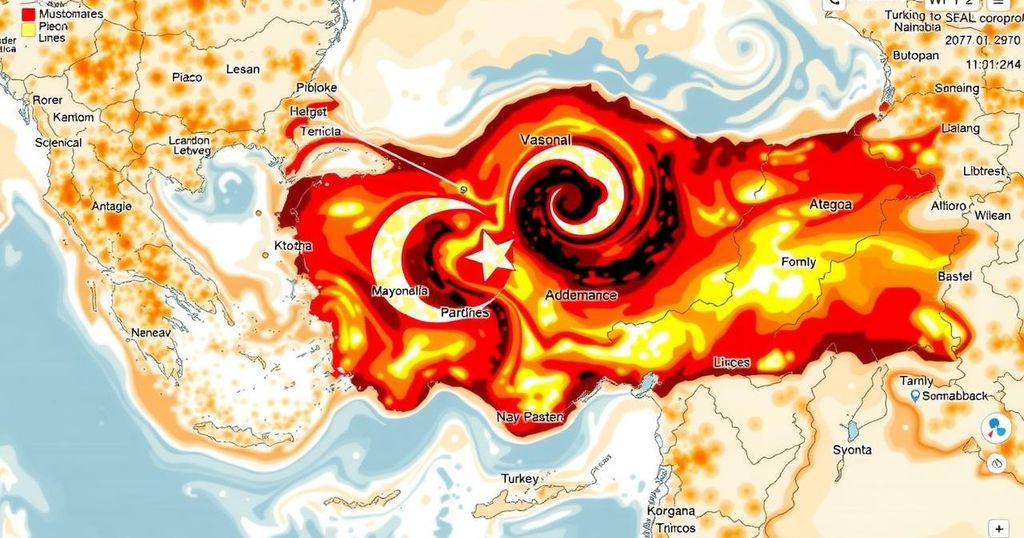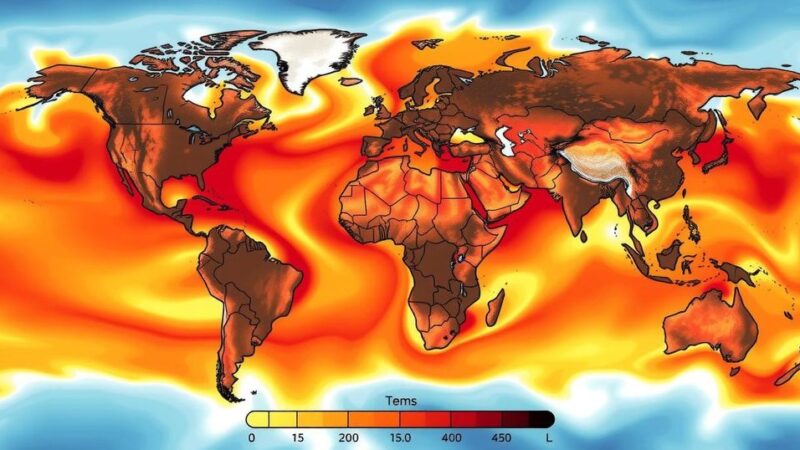Turkey experienced its hottest year on record in 2024, with an average temperature of 15.6 degrees Celsius, surpassing previous records due to climate change. Drought and lower than average rainfall have critically impacted water resources and agriculture, particularly in coastal regions. Similar temperature increases affected many countries worldwide, emphasizing a global climate crisis.
In 2024, Turkey recorded its highest annual temperatures in history, according to the nation’s meteorological agency. The average temperature reached an unprecedented 15.6 degrees Celsius (60 degrees Fahrenheit), exceeding the average of 1.7 degrees Celsius compared to the years 1991-2020. Since 2007, Turkey has experienced above-normal temperatures annually, aside from a singular exception in 2011. Compared to the previous record of 15.5 degrees set in 2010, the significant rise underscores troubling climatic trends, coinciding with similar extreme weather patterns observed globally, particularly affecting nations like China, Brazil, Japan, and the United States.
The drought conditions in Turkey have worsened, with rainfall recorded at 6.3 percent lower than the norm, notably impacting regions such as the drought-vulnerable Aegean coast where deficits reached 22.4 percent. This shortage has not only stressed the availability of water but also contributed to agricultural challenges, including the notable increase in sinkholes in Konya province. Such phenomena are indicative of over-exploitation of groundwater, raising alarms regarding sustainable agricultural practices. Furthermore, the United Nations’ World Meteorological Organization has referred to 2024 as the hottest year globally, underscoring the urgent need for action against climate change.
The warming climate has become a pressing issue worldwide, with extreme temperature records being shattered in numerous nations during 2024. As global temperatures increase, the direct consequences manifest as prolonged drought periods, altered rainfall patterns, and significant environmental changes. Turkey’s situation exemplifies the broader challenges faced by many regions today as the nation grapples with increasingly severe weather. The droughts affecting Turkey have been exacerbated due to groundwater depletion and represent a critical concern for agricultural sustainability. Moreover, the UN’s warnings regarding climate change amplifying the risks serve as a call to action for nations to reassess and modify their environmental policies, aiming to mitigate future catastrophic impacts. Understanding these trends is vital for creating effective strategies to combat climate change and protect resources.
In summary, 2024 marked Turkey’s hottest year in recorded history, reflecting a wider trend of rising global temperatures attributed to climate change. The implications of these rising temperatures have profound effects on rainfall patterns, agricultural viability, and environmental stability. Turkey stands as a critical case study among various countries experiencing similar temperature surges and droughts. Urgent collective action is needed to combat climate factors threatening ecosystems and sustainable development.
Original Source: www.barrons.com







